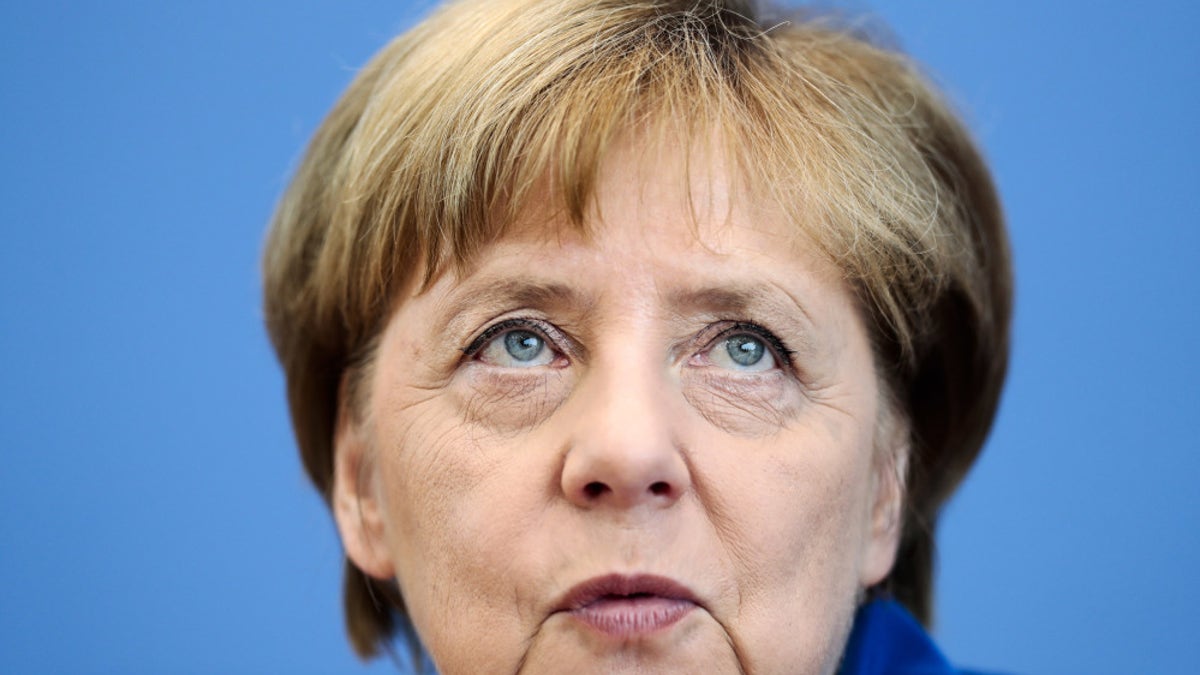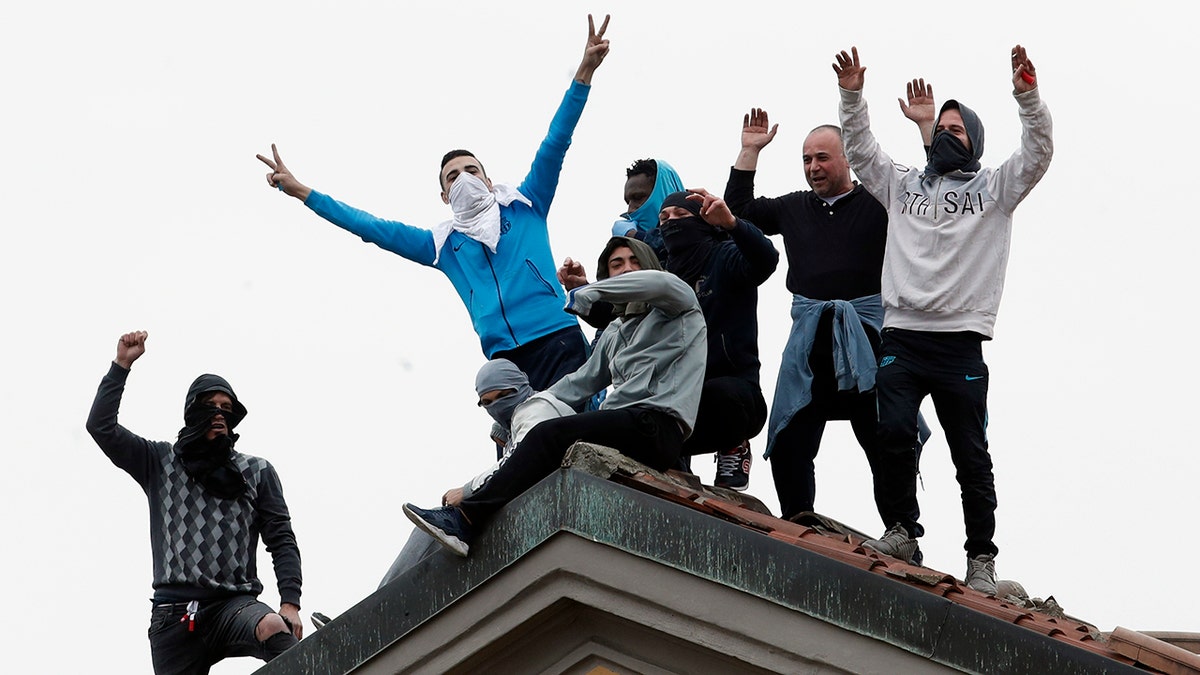'Outnumbered Overtime': Coronavirus outbreak special
Anchor Harris Faulkner hosts a special edition of 'Outnumbered Overtime' with insight on the coronavirus outbreak from Dr. Mehmet Oz, CMS administrator Seema Verma, member of President Trump's coronavirus task force, and the Fox News medical A-Team.
As both the number of coronavirus cases and deaths rise around the world, one country has so far remained an outlier in terms of fatalities: Germany.
As of Monday afternoon, officials had recorded more than 1,175 cases of the disease and zero deaths in the nation of 82 million people. By contrast, nearby Italy – which has a population of 59 million – has just shy of 9,200 cases and at least 463 deaths. Neighboring France -- population 67 million -- has documented 30 deaths, while Spain -- population 46.7 million -- has lost 26 people. Even the United States has encountered over 600 cases and some 22 fatalities.
So what is Berlin's approach to the outbreak and how is keeping the human cost down?
"Germany (is) working hard to retrace the steps of people who contracted the virus, and their methods of 'tracking of the infection chains' are helping in the reduction. All events with more than 1,000 participants are to be canceled," explained Dr. Norman Fried, a medical expert and professor at Columbia University. "Huge public fairs are being scrapped, including Berlin's travel fest ITB and the Leipzig Book Fair, as well as the postponement of many other public events. Rules governing compensation for workers forced to cut hours are being eased."
RUSSIA AND SAUDI ARABIA SPARK UNPRECEDENTED OIL WAR AMID CORONAVIRUS THREATS
Fried furthermore emphasized that, at least up until Monday, Germany's actions had been "harsher and more stringent than those in Northern Italy where a rising death toll is occurring."
"Italy's higher death toll may also be a function of the age of their citizens," he said, noting that Italy has the oldest population in the world. "More specifically, the average age rate of those who have died in Italy was 81 thus far, the majority of whom were already suffering underlying health problems."
On Monday evening, Italy Prime Minister Giuseppe Conte implemented nationwide travel restrictions requiring people to demonstrate a need to work, health conditions or other limited reasons to travel outside the areas where they live. The decree is one of the most stringent restrictions on movement ever undertaken in a Western democracy during peacetime.
Early Sunday, Conte signed a decree attempting to lock down 16 million people in Italy's prosperous north -- including the country's industrial and financial capital, Milan. The tight restrictions included a ban on individuals leaving and entering Lombardy, Venice, and 13 other provinces and cancelation of leave for all health workers

Police officers and soldiers check passengers leaving from Milan's main train station Monday. (AP Photo/Antonio Calanni)
David Jacobson, a Professor of Practice teaching Global Business Strategy at SMU's Cox School of Business and a visiting professor at Tsinghua University in Beijing, pointed out that containment procedures across Europe varied from the start.
"The Germans have taken this disease seriously since December. They are committed to transparency, testing and have devoted a huge amount of resources to track sources of what appears to be community spread so that the root cause of each chain can be found and those connected in any way can be warned, isolated, tested, etc.," he said. "On March 3, the Italian government was still deciding if this was an Asian problem or something different. When an Italian Senator wore a face mask to the senate chambers, he was ridiculed."
The World Health Organization (WHO) has stated that it fully supports the rigorous actions, which are in lockstep with its recommended guidelines for containing the outbreak.
Stephanie Brickman, a spokesperson for the WHO Office for Europe, told Fox News that the case fatality rate might differ from country to country due to demographic factors, such as differences in the age structure of the population.
"In the case of COVID-19, patients who pass away from the disease were infected 2-3 weeks previously on average. The outbreak in Italy has been evolving for longer than other places in Europe, and therefore more patients will have completed their final outcome and either been discharged or sadly passed away," she said. "Other European countries, which are earlier in the epidemic, may well begin to experience deaths in the coming days and weeks."
Dr. Robert Quigley, Senior Vice President and Regional Medical Director of International SOS, also noted that there are several factors that may impact a country's outbreak acceleration.
"Social distancing, one of the recommended mitigation strategies, may be difficult to implement with some cultures accustomed to intimate contact – a handshake, kissing, hugging," he said. "And not all public health resources are created equal. The measures of containment, screening, quarantine, isolation may vary from one jurisdiction to another. Italy is the European nation with the greatest number of air connections with China, so it is no surprise that this country has been hit the hardest."
Quigley also contended that public health practices seen in Germany to date are not unique, and "it may just be a matter of time before the number of cases rises and in turn the death rate."

German Chancellor Angela Merkel (The Associated Press)
And Dr. Blanca Lizaola M.D., co-founder of SOS Hydration, also underscored that most of the deaths worldwide have been elderly patients with other comorbidities, such as diabetes, chronic kidney, and lung disease and patients where the diagnosis has been delayed.
"As an aside, Germany is also known amongst European countries as having an excellent elderly care program," she said. "Again, the most important thing is prevention: proper and frequent hand washing, avoid touching eyes, nose and mouth, and abstain from close contact with sick individuals."
As of Monday, coronavirus had spread to 98 countries with almost 110,000 cases recorded
CORONAVIRUS IN THE US: STATE-BY-STATE BREAKDOWN
Nadja Atwal, a German publicist and political pundit, credited the Trump administration for its prompt implementation of border controls and surmised that the healthcare system is one in which citizens aren't in fear of seeking help from a financial point-of-view.
"Everyone is insured. When self-employed, your premium is according to your income, when employed, you and your employer split to in a fair manner, and if you cannot afford healthcare at all, the government steps in," she said. "But one can opt for private plans either for full coverage or to supplement one's public plan. In Germany, it is all over the news right now how Americans are scared to go to the doctor and test for coronavirus due to fear of the costs. That fear does not exist in Germany; people go to the doctor the minute they feel symptoms for anything unusual, and as a result, they get immediate medical treatment."
Cologne-based physician and researcher Dr. Stefanie Seyda concurred that "healthcare for everyone has the longest tradition in Germany, and that everyone has to be insured, be it via a public or private health insurance by law."
But Rik Heller, founding president of the Dallas-based Wello Inc., which endeavors to design technology to help prevent the spread of infection, said that the risks across both Italy and Germany for more cases are ascending. However, Wello's models predict numbers will begin falling by the month's end, and much of it has to do with weather patterns.
"Our model predicted that the past days of February to mid-March would generate a significant uptick in Europe, [then] on to the West coast of Asia. While the air mass pattern [dry air] is far less active than in the middle U.S., the U.S. did not have the cases [seeds] as did Europe," he said. "Europe appears to have succumbed to a bit moister spring while the U.S. keeps oscillating [from] moist to dry every five days or so."

Inmates stage a protest against new rules to cope with the coronavirus emergency, atop the roof of the San Vittore prison in Milan. (AP Photo/Antonio Calanni)
Moreover, Heller said, their formulae show the U.S. is still going through these oscillations of moist to dry air masses which directly affect indoor humidity.
"Germany is as prepared as it can possibly be. They have an infrastructure that includes a network of centers of expertise and special clinics which they claim is unmatched by international standards," said Mark Emalfarb, CEO and founder of global biotechnology company Dyadic International. "They also claim to have a very good disease warning and notification system, as well as excellent pandemic preparedness plans. In addition, it has been reported that regular emergency training exercises are conducted at airports in Germany."
Fried also said that there are some takeaways Washington could draw from Berlin, should a similar health emergency again grip the world.
"There is a greater need for strict and stringent bans of public events that total more than 1,000 persons. Businesses large and small must ease the rules governing compensation for American workers who take time off for sick days," he said. "Elderly and infirm in America need to be attended to more vigilantly, aggressively and carefully before young members the population are attended to."
CLICK HERE FOR COMPLETE CORONAVIRUS COVERAGE
Others, such as German journalist Heiko Roloff, highlighted that the reasons behind Germany's fewer deaths might be multi-pronged.
"Luck and timing – or the lack of it. Italy just got hit early with travelers bringing the virus into their country," Roloff said. "So when it spread, and the first casualties were reported, the rest of Europe was on high alert. And doctors are accessible for pretty much everybody."

